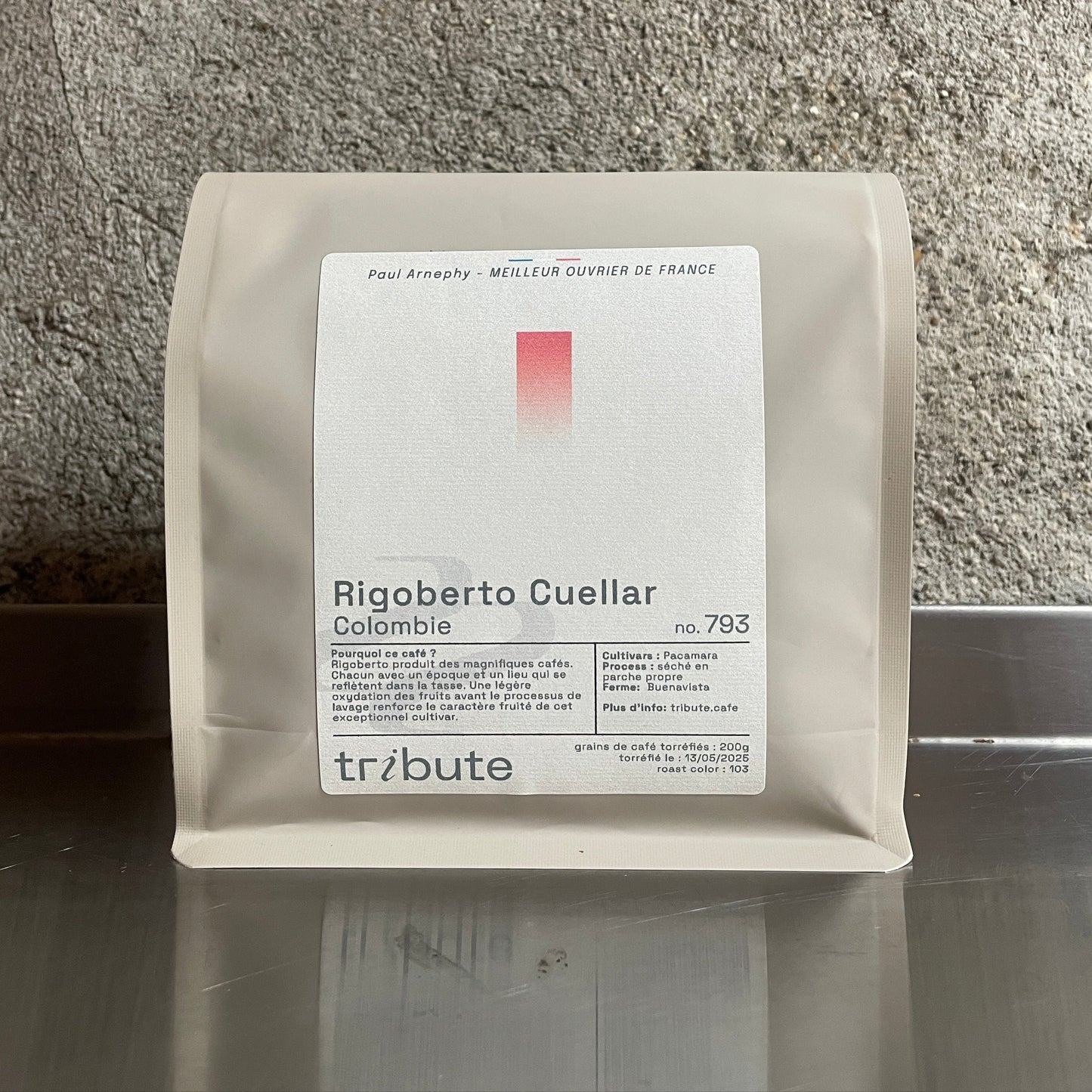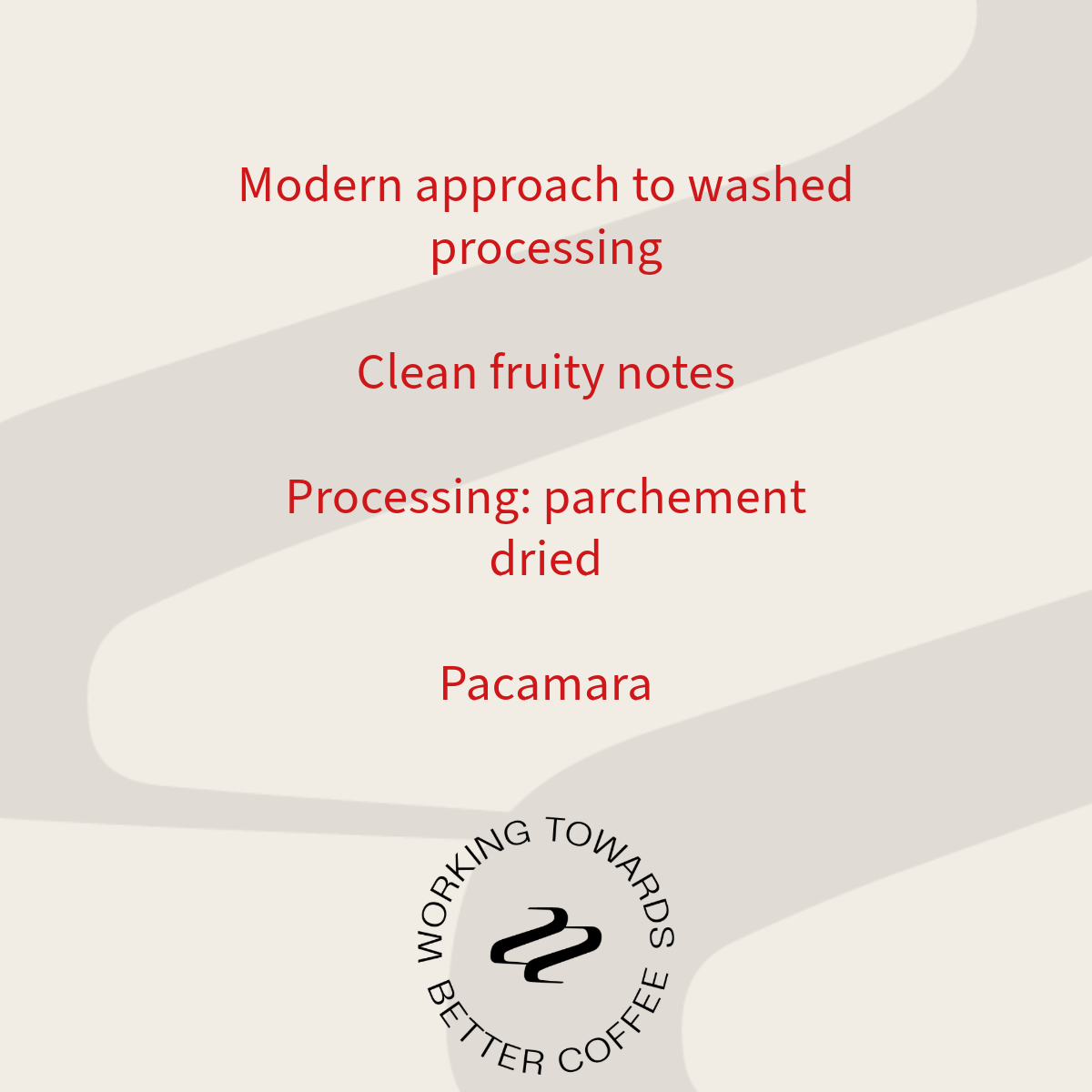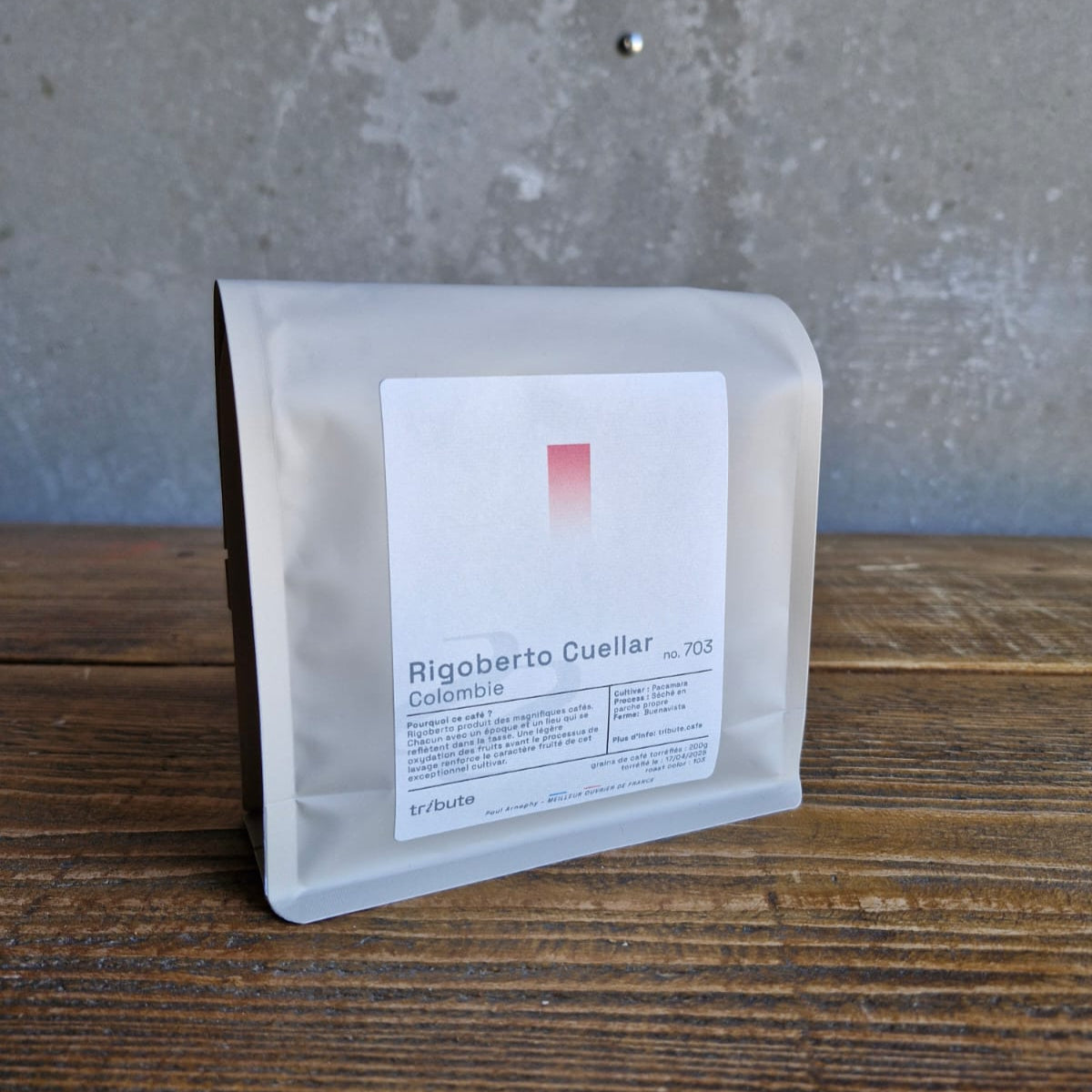Couldn't load pickup availability
The aromatic power of the Huila terroir put in a spotlight by expert level processing
A fruit bomb with a bright and clean finish
Share


More information

Why this coffee?
This coffee is a beautiful piece of work
Processed by Rigo at an expert-level, it will please those who love the cleanliness of washed coffees with the fruity depth that can be found in some naturals.
Once harvested, the ripe coffee fruit is left to oxidise for roughly 40 hours before being washed and pulped. Once pulped, the seeds are fermented for an addition 24 - 36 hours before being washed clean of all remaining mucilage and slowly dried over a 2 - 3 week period.
This approach to processing is risky and requires a deep understanding of fermentation with careful monitoring of PH levels, temperature and time. As those three variables are closely intertwined, each one affecting the other.
This choice of processing also has a beautiful complementarity to the pacamara cultivar that Rigo grows. The buttery texture and rich flavor density of the pacamara is highlighted with the fruity notes generated by the processing.
The best part? The end result has a clean and bright taste stucture, with transparent fruity flavours.
This is a certified killer on espresso or filter preparation
Technical information
Producer: Rigoberto Cuellar
Farm: Buena Vista
Farm size: 3 HA
Province: Salado Blanco, Huila
Species: Arabica
Varieties: Pacamara
Process: Parchment dried
Drying: Raised beds in a greenhouse
Altitude: 1,800 m
Harvest type: Manual
Moisture content of green coffee at the time of purchase: 10.6 %
Farm gate price: € 11.04 / kg
Producer's History
Rigoberto Cuellar is a 33-year-old young man who comes from a coffee-producing family in the municipality of Salado Blanco in Huila.
He grew up in the midst of crops, accompanying his father in planting and other tasks that coffee demanded, thanks to his father he became so involved in the subject of coffee that it would become his way of life.
At the age of 27, Rigo (as he is called in his town) suffered a great loss that forced him to take over the reins of the farm. His father, a hard-working man recognized by the community, had been cruelly murdered at the door of the house. After the death of his father, for the next 6 months Rigo went into a deep depression, he didn't eat, he didn't want to talk to anyone, the issue of revenge didn't come out of his head, he thought about finding the person who did this to his father...without realising that the most precious thing for his father (the farm) was in complete abandonment.
One day in the midst of tears, still with many doubts and suffering, Rigo reacted and realised that it was a mistake to continue like this and neglect in this way the farm that his father had built with so much love and sacrifice. He gained strength and began to build the farm again, painted the house, began to plant new coffee, day by day he asked God for strength to continue with everything his father taught him.
Rigo remembers how he stayed until 8 pm working in the farm, cleaning, planting; His mother and wife went looking for him, but he realised that his father was doing the same for his farm and he felt that this makes his father proud wherever he was.
Another of the reasons that moved him deeply was to see his wife and children, he knew that the situation was not easy for them either and they did not deserve to go through another pain similar to the one he was going through. The motivation and support of his family achieved positive changes. Rigo began to plant various products other than coffee, such ascassava, arracacha, bananas, among others. The neighbours wanted to help him, but he did not do it with that intention. What he really wanted was to get busy to take her mind off her pain and instead find ways to move on with her life.
Although the pain, the absence and the questions still haunt his head, he feels satisfaction knowing that his father gave him the necessary tools to make the most of the land. However, Rigo knows that the markets are changing and he is clear that he wants to evolve and keep pace with these changes, his interest in acquiring new knowledge and improving his production processes is evident, he is currently taking roasting and tasting courses...…
"I try to take samples of the classes to my children, so that from a young age they learn and appreciate thereason that they give us to eat"...
From the top of the farm, you can see several municipalities in Huila such as Pitalito, Mesa de Elias, among others... living up to its name, the view is truly wonderful; It is located in the municipality of SaladoBlanco at an altitude of 1800 metres above sea level, the variety planted is pacamara where the main harvest months are from October to December, surrounded by a shady banana plantation and other native trees such as oaks, cedar, and eucalyptus. To protect the coffee from the sun's rays.The fauna there is very varied, wild animals such as: guatines,borugas, armadillos, different kinds of birds, among others... and within the farm several domestic animals: chickens, pigs, 2 cats and 3 dogs: killer, little star and lupita, who in addition to providing company also fulfil a certain role within the farm.
Rigo has been implementing organic farming practices. It develops a production of coffee and associated crops free of agrochemicals, implementing agroecological practices that contribute to the conservation and preservation of the environment. The fertilisation carried out on this farm is based on an organic production management plan, which relies to a greater extent on elements of biological waste, the composting of organic matter and the application of mineral mixtures as a complement to fertilisation. The same coffee pulp is one of the main sources for soil fertilisation, which is carried out 4 times a year, while maintenance work, pest control, microorganisms and diseases are carried out throughout the year.
Extraction tips
Espresso
Ratio 1:2.6
18g of ground coffee
46g in the cup (2 x 23g)
23-30 seconds according to your taste
Filter coffee
Ratio 1:17
15g of ground coffee
255g of water (between 92-99°C depending on the brewing machine)

